Reviews
De Lift
Dick Maas
The Netherlands, 1983
Credits
Review by Leo Goldsmith and Thomas Scalzo
Posted on 30 October 2007
Source Media Home Entertainment VHS
Related articles
Features Dark Passages: The Films of Dick Maas
Reviews Amsterdamned
Reviews Silent Witness
Reviews The Shaft
Categories 31 Days of Horror
Thomas’ thoughts:
To quote his boss, elevator repairman Felix Adelaar is “one of the best mechanics” around. And it’s a good thing too, because Felix has precious little else going for him. His kids are a pair of whiners, his wife lost that loving feeling long ago, and his friends are few and far between. It’s no surprise, then, that when a lift at the Icarus building starts acting up for no apparent reason, Felix dedicates every waking moment of his life to solving the mystery.
At first, the lift is merely a nuisance, refusing to stop at the correct floor, randomly shutting off its ventilation system, opening and closing its doors without provocation. But soon enough, it gets angry, and thirsty for blood. Assisted by an inquisitive reporter, Adelaar searches high and low for an explanation to this elevator evil, pouring over schematics and newspaper clippings, visiting asylums and university professors, and spending countless hours mired in the greasy inner workings of the murderous machine. Though his wife unfairly accuses him of adultery, and eventually absconds with his children, Felix is unfazed, redoubling his efforts to understand where this lift went wrong.
A fascinating moviemaking experiment, The Lift attempts what most horror filmmakers would likely deem impossible, or utterly pointless: an entire picture centered on an immobile source of terror and a disgruntled family man. At first glance, it seems as if director Dick Maas deliberately chose the most mundane subjects as a personal test, to see if he could create something narratively interesting out of basically nothing. For horror fans don’t care about an unhappy elevator repairman’s personal life, they want death, and how many ways can an elevator possibly kill people? (The answer is four).
But as we ponder Maas’ curious creation more intently, it becomes apparent that The Lift is much more than just a cinematic challenge—for amidst elevator-door decapitations and elevator-cable strangulations, Maas has a message, and determinedly uses The Lift as his medium. Consider the name of the troublesome building, for instance: Icarus—surely not a random choice, but a warning that the gods are easily provoked by audacity. And why, in the end, is the lift acting so strangely? A simple mechanical malfunction? No, the problem lies with a set of self-replicating bionic microchips—material evidence of the impudent, and unchecked, scientific ambitions of humankind.
Even the very concept of elevators, a testament both to man’s mechanical ambition and his laziness, is debased by Maas’ repeated characterization of elevator users as slothful idiots. Take the quartet of middle-aged imbibers that open the film. Far from appreciating the lift’s ability to offer them safe, expedited passage to the first floor, they curse when the doors don’t open quickly enough, and use the idle time during the ride to disgustingly fondle each other. The Icarus building manager is another example, a man who not only bellyaches over having to walk up and down stairs, but also can’t figure out how to use an elevator even when he is afforded the chance to be conveyed by one. “I must have pressed the wrong button,” he says at the start of one such ride. “That happens to me quite a bit.”
Thankfully, Maas has Felix to offset the mounting absurdity of his human characters. Despite his inability to hold his family together, Felix is a man of dedication, a man unafraid of work, and unwilling to allow the mystery of the lift to be solved by anyone but he. True, his non-existent personal life may play a part in motivating his investigations, but even when the reporter starts making eyes at him, Felix remains committed to his quest, particularly when he realizes that the evil lift at the Icarus may well be the tip of a malevolent-mechanism iceberg. In such a way, Felix (whose surname translates as eagle) endures as one of the great anti-heroes of horror, and serves as a symbol of hope for mankind.
Leo’s thoughts
Felix Adelaar is a normal guy, his affect as flat and grey as the Dutch landscape that surrounds him, his home life a bore, and his class middle. As an elevator repairman for Deta Liften, Adelaar seems to lead a rather repetitive existence, driving around in his van to tinker with lifts, an occupation that evidently requires him to move up and down without going anywhere. Elevators are one of the annoying mundanities of modern life. But fortunately for Adelaar, this is a horror movie, and therefore no aspect of modern life is without a potentiality for terror, no matter how mundane it seems.
Of course, elevators are not all that mundane to everyone. The notion of being trapped in a box and suspended by unseen mechanisms several stories above the ground is bound to inspire certain phobias. But the titular convenience of Dick Maas’ first feature film, The Lift, doesn’t just make people jittery, it goes after them. Indeed, apart from its first potential victims - two boorish, bourgeois couples who are nearly boiled and asphyxiated while playing grab-ass aboard the elevator - most of the killings have nothing to do with claustrophobia or acrophobia. Indeed, one of Maas’ principal gifts is his inventive sense of bad taste, and The Lift is primarily a showcase for all of the ways he can think to have an elevator kill someone. And if possible, quite gruesomely: decapitation, strangulation with cables, general battery, and of course the old empty shaft trick.
All of this comes at just the right time for Adelaar, whose bitchy wife, bratty kids, and dreary job have clearly left a void in his life to be filled by some much-needed intrigue. Soon, he is linked with a prototypically sassy girl-reporter who shares some strange conspiracy theories about modern elevator design that are sure to make Felix’s job more interesting. “Thank you, but I have enough problems of my own,” he tells the moxieful Mieke. “And one thing I don’t need on top of everything else is a fight with my boss just because some weird friend of yours makes up stories about computers that reproduce!” But as nightwatchmen, blind men, cleaners, and various others continue to drop like flies, Adelaar and Mieke make it their mission to track the cause of the dreaded elevator murders to their throbbing, gelatinous source.
Maas’ first feature cannot have been expensive to make, but it makes great use of minimal settings - specifically the always dimly lit, semi-brutalist interiors of a then-modern office building - to sustain an eerie mood that’s impervious to all the broad comedic acting throughout the film. Huube Stapel’s Adelaar serves to keep the film steadily watchable as well, always evincing a likeable world-weariness that very nearly suggests a fully written character. But one doesn’t watch The Lift for character development. This is a movie of cheap thrills, evenly deployed, and adequately realized. And even if this is not Maas’ most accomplished or thrilling film, it nonetheless paves the way for a good deal more blood-letting, explosions, and bad taste ahead.
More 31 Days of Horror
-

Alien
1979 -
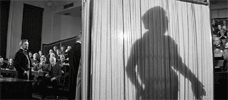
The Elephant Man
1980 -

My Bloody Valentine
1981 -

Who Can Kill a Child?
1976 -

Cannibal Holocaust
1980 -

Let Sleeping Corpses Lie
1974 -

John Carpenter’s Vampires
1998 -

Jaws 2
1978 -

A Warning to the Curious
1972 -

Wolf
1994 -
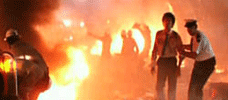
The Survivor
1981 -

Cannibal Ferox
1981 -
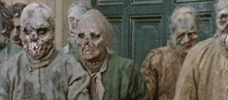
The Nights of Terror
1981 -
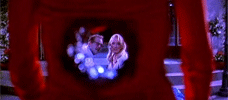
Death Becomes Her
1992 -

Alice, Sweet Alice
1976 -

Body Double
1984 -
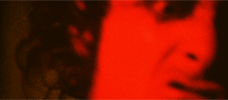
Invocation of My Demon Brother
1969 -
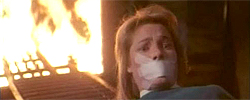
Phantasm II
1988 -
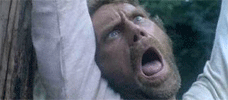
Emanuelle and the Last Cannibals
1977 -

The Wicker Man
1973 -

Maniac Cop
1988 -
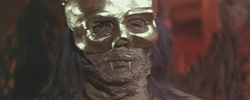
The Legend of the 7 Golden Vampires
1974 -
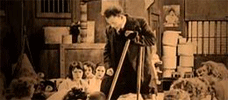
The Penalty
1920 -

Boxing Helena
1993 -

Chew on This
2005 -

Night of the Creeps
1986 -

Night of the Lepus
1972 -

Near Dark
1987 -

Army of Darkness
1992 -
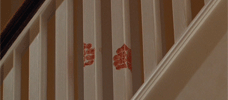
The Brood
1979 -
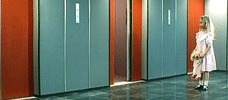
The Lift
1983 -

Amsterdamned
1988 -
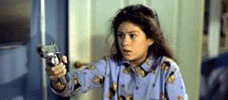
Silent Witness
1999 -
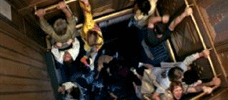
The Shaft
2001
We don’t do comments anymore, but you may contact us here or find us on Twitter or Facebook.



